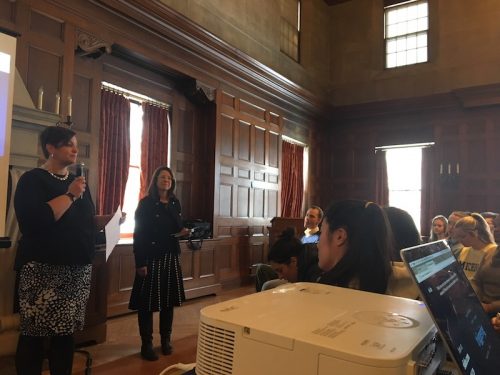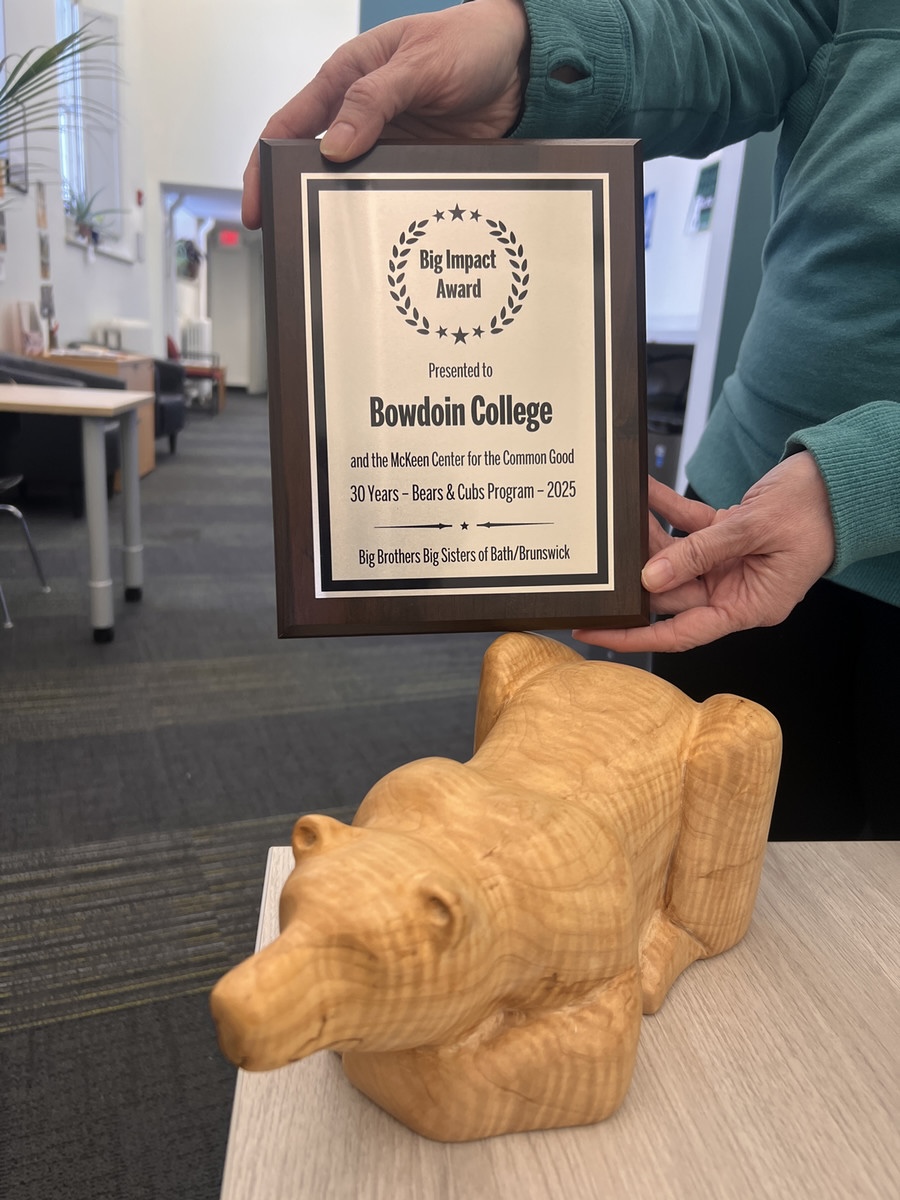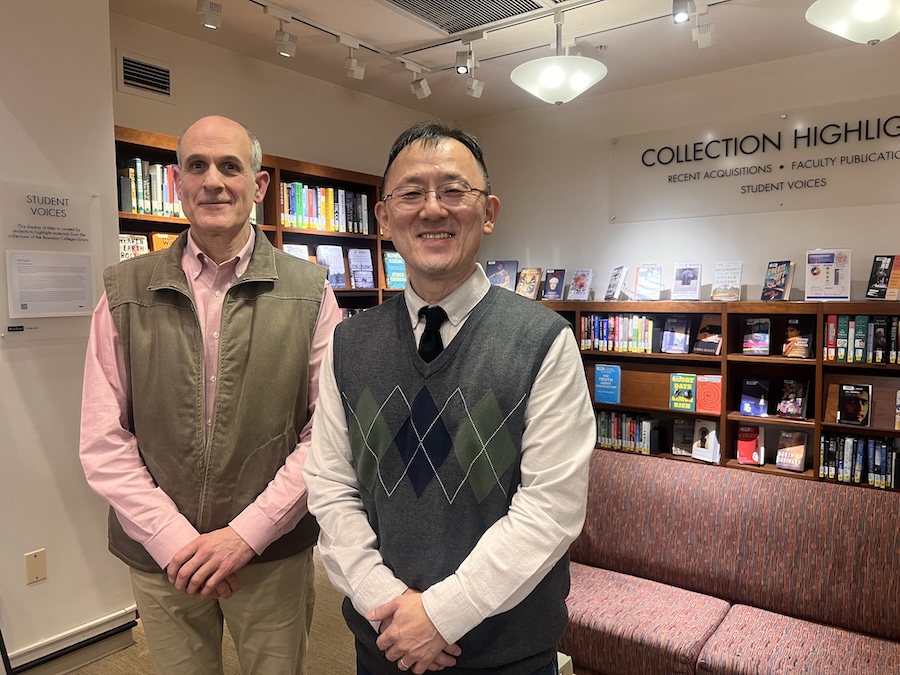What Matters’ Campus Conversation Tackles #MeToo Debate
By Tom Porter
When it comes to the complicated world of human relationships, where is the dividing line between awkward encounter and assault? How should we deal with accusations of sexual assault on campus and elsewhere? What do we want from the #MeToo movement? Education? Justice? Ethics? Empathy? And what are the implications for our culture here at Bowdoin as #MeToo evolves?
These were some of the questions tackled by the 120 or so students who filled Main Lounge, Moulton Union for a “What Matters” conversation about the #MeToo movement on February 9, 2018. Issues of gender violence and sexual assault have been at the center of public debate since the #MeToo movement was mobilized into a hashtag in October 2017.
The movement has been praised for raising accountability and awareness about the problem’s scope—but some worry that its impact is unclear or divisive. The question now, said Associate Professor of Religion Elizabeth Pritchard, who moderated the event, is whether we have now arrived at a moment for real and lasting change.
Students debated the pros and cons of a “call-out culture,” where perpetrators of sexual assault are publicly identified. One student stressed the importance of punitive consequences for those who offend. “It’s too easy for perpetrators, especially those from a privileged background, to slip through the cracks, so having real discipline and punishment is absolutely necessary.”
Others expressed caution over this approach, arguing that “quick fixes” like this risk causing further polarization and won’t change the long-term culture. Instead, observed one student, sexual assault will remain something that you either “get away with” or you don’t.
Some students also said the #MeToo movement has demonstrated the need for better sex education. “If more people were comfortable talking about sex, this may lead to less assault,” remarked one.
There were also calls for a broader conversation about what consent looks like, and what assault looks like. “Men need to be way more critical of each other right now,” said one male student, “and I don’t see that on campus.”
The event was sponsored by Bowdoin Healthy Relationships (BHeRE), Bowdoin Men Against Sexual Violence (BMASV), Women’s Rugby, Men’s Rugby, Bowdoin Volleyball, Baxter House, and the McKeen Center.



